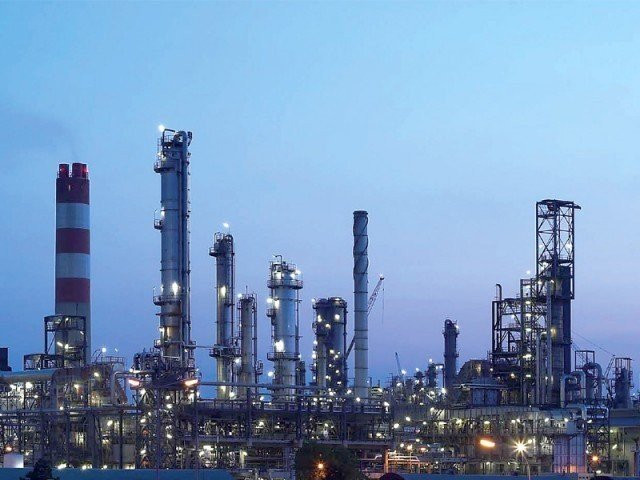Upgrade of refineries unlikely in short run
Installation of hydrocracking units may take months or more than a year

Installation of hydrocracking units may take months or more than a year.
PHOTO: FILE
Authorities allowed the refineries to use the fund to install hydrocracking units, which allows the conversion of furnace oil into petrol, diesel and other petroleum products.
“This (the installation of hydrocracking units) is not possible in a short period,” an industry source told The Express Tribune. “It may take many months or even more than one year.”
On the other hand, the installation of the conversion units is a must to avoid a repeat of the recent energy crisis in the next winter as it is not possible to stop production of furnace oil, which remains a co-product of petrol, diesel and other petroleum products at the refineries.
Prior to this, the refineries, except for one, in the country had not addressed previous issues of producing quality petrol and diesel in compliance with the set standards.
Crown prince’s visit: MoU finalised for Saudi Aramco oil refinery in Gwadar
To recall, state-owned Pakistan State Oil (PSO) imported a significant quantity of furnace oil despite it being available in excess volumes at local refineries after the government pulled the plug on furnace oil-fired power plants in winter.
The imported fuel along with the locally produced one spilled over at almost all the oil storage facilities at the refineries nationwide. The situation badly impacted the production of furnace oil co-products like petrol, diesel, kerosene and others. The situation forced oil and gas exploration and production companies like Oil and Gas Development Company (OGDC) and Pakistan Petroleum Limited (PPL) to cut their crude oil and gas production from different fields. This gave birth to an energy crisis, resulting in blackouts of gas supplies to the industrial units across Sindh.
This is not for the first time the energy crisis has hit the country, particularly Sindh, during winter when the government reduces its reliance on furnace oil-based power plants as they remain the most expensive option in the energy mix. Besides, the government has decided to phase out oil-fired power plants since it has installed cheaper and environment friendly LNG-fired power plants in the recent past.
In order to avoid repeat of the crisis in the future, the government has instructed refineries to use the fund to upgrade their production capabilities as there is no option available to abandon furnace oil production.
Industry officials said the production crisis at refineries is yet to end as exporting furnace oil is not an easy task in the absence of required infrastructure. Secondly, the government has asked PSO and independent power producers to store the excess furnace oil at their reservoirs, which is happening at a very slow pace.
Accordingly, the gas crisis for the industries continued to persist in Sindh.
JS Research said in a commentary to its clients that nearly all oil refineries had installed isomerisation plants around two years ago to convert low sulphur naphtha into petrol of 80-82 grade.
Due to the mandatory requirement of minimum Research Octane Number (RON) 92, the refiners were adding manganese (Mg) to boost the production of required RON. However, automakers, particularly Honda Atlas Cars, complained about choking and engine knocking issues in their cars due to the high manganese content used in mogas products. This led to the Ministry of Energy imposing ceilings of 40mg per litre, which was further reduced to 24mg per litre effective November 1, 2018, it added.
From April 1, 2019, the oil refineries will have to eliminate manganese from their products. “We believe this requirement will severely limit the refiners’ ability to convert naphtha into mogas of specified RON, leaving them no option but to export it,” it said.
The refineries have collected Rs500 billion through 7.5% deemed duty on sale of diesel at retail level.
“The (media) reports suggest that officials have warned if the deemed duty is not fully used to upgrade the plants to modern standards, the collected funds would be utilised in the new Mehmood Kot oil refinery,” JS Research said.
Published in The Express Tribune, January 10th, 2019.
Like Business on Facebook, follow @TribuneBiz on Twitter to stay informed and join in the conversation.



















COMMENTS
Comments are moderated and generally will be posted if they are on-topic and not abusive.
For more information, please see our Comments FAQ